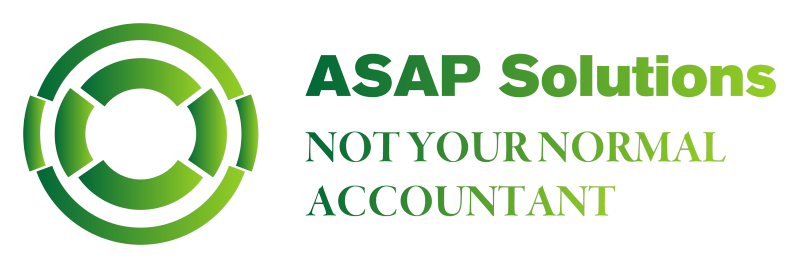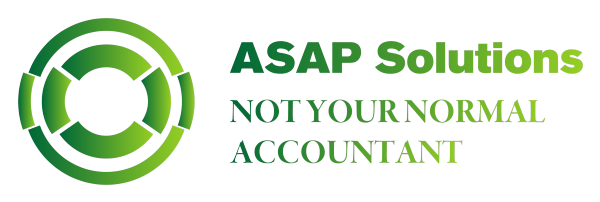It’s that time of the year again when we start thinking about preparing for the end of the financial year. As an NDIS Support Worker, the end of the financial year can be overwhelming. Especially for sole traders and micro businesses keeping track of expenses and collating receipts, it can a minefield.
But there are some ways you can minimise your tax. Not every strategy will work for you so it’s important that any tax planning considers your business or personal position and goals. Let’s break this down and look at some common considerations when it comes to tax planning.
Making effective superannuation contributions
To maximise the benefit received from the Australian government, there are two methods you can use to make your super contributions work the most effectively for you.
1. Superannuation concessional contributions
Self-employed contractors and freelancers are often responsible for their own retirement savings, unlike salaried or PAYG employees who typically have this taken care of. As a result, many delay their retirement planning and contributing to their super.
Contributing to your super through the concessional contribution can provide a tax benefit. This is because your super contributions are deducted from your pre-tax income and are taxed at a lower rate of 15%, with a limit of $27.5k per year. Utilising the concessional contribution can be a productive strategy for reducing your tax rate.
It’s important to know that you can make an additional contribution of up to $110k to your superannuation fund, in addition to the $27.5k concessional limit. However, you cannot claim a deduction for this amount as it comes out of your post-tax income. Contributing to your superannuation is a vital way of saving for your long-term future and is a worthwhile investment.
2. Superannuation co-contributions
The Super co-contribution scheme is an Australian Government initiative to help low and middle-income earners increase their superannuation contributions, by matching a certain number of contributions made into a superannuation fund up to a maximum of $500. So, if you meet the eligibility criteria and put $1000 into your superannuation scheme, the government will match you with an additional $500. This gets paid directly into your super scheme after you have lodged your tax return. However, if you make a personal contribution and claim an income tax deduction for this contribution, you will not qualify for the co-contribution scheme.
Claiming business deductions
It may be beneficial to pay certain business expenses before the end of the financial year, regardless of your income or level of expenditure so you can claim them as a tax offset. Just remember, that if you pay an expense such as a subscription up-front this year you will not be able to claim the deduction next year.
When claiming expenses as an NDIS Support Worker, it’s important to keep in mind a few golden rules:
- All expenses must be for your business, not for personal use.
- If the expense is a mix of business and personal use, only the business portion can be claimed.
- All records and receipts must be up to date and able to prove the purchase.
- Only what has been paid for out of pocket is claimable. Any employer reimbursements are no longer claimable.
- Allowances are different, if you receive an allowance for an expense, you can claim it.
Knowing what you can and can’t claim
This can be difficult and sometimes frustrating to decipher so here is a list of some of the more common things you may be able to claim as a NDIS Support Worker.
Clothing
Clothing that is solely used for work purposes is deductible. These include:
- Protective clothing such as gloves, shoes, scrubs, and masks
- Compulsory uniforms that are specified in your employer’s uniform policy
- Occupational-specific clothing that distinctly identifies a person associated with a particular occupation
Equipment
You may be able to claim work-related equipment, such as art supplies, computers, printers, and mobile phones, as a tax deduction. With government pandemic stimulus initiatives, more expensive items could qualify for accelerated depreciation (temporary full expensing). However, before making a big purchase, it’s best to speak with your tax agent for guidance.
Mobile phone bills
If you only use your mobile phone for business, you can claim deductions for both the phone’s cost and the monthly service fees, regardless of whether you have a prepaid or monthly plan. However, if you use the phone for both business and personal use, you can only claim a percentage of the expenses that correspond to the business usage.
Professional fees and subscriptions
There are a variety of professional fees and subscriptions that are claimable. These include annual subscriptions to an association for annual practising certificates, memberships, or accreditation. Union fees or any business-related software, magazines, or licensing fees.
Professional insurance
You can claim insurance expenses as business expenditures if you have professional indemnity insurance to protect your clients, public liability insurance to cover your business in case of an incident, or insurance for all your business assets.
Advertising
Promoting your business, whether its website costs, signs, digital advertising, printing, or newspaper advertising, can be claimed as a business deduction.
Professional development
If you spend money on courses, training, and development to improve or maintain the knowledge, capabilities or skills required for your current job and income, you can claim the expenses.
Travel expenses
Any travelling cost between your home and place of employment isn’t considered as a deduction but if you transport a client during a shift, travel from one workplace to another or any parking, tolls, or public transport you pay would be considered.
Key dates to remember
Besides all the possible deductions, one of the most important things is to remember that your tax obligations aren’t over at the end of June. There are a variety of dates to ensure you are all up to date and compliant with your taxes and obligations. These include:
1st July
The start of the new financial year and where all tax-related obligations centre around. On this date, you can begin applying for your tax refunds for the prior financial year.
31st October
With no extension or tax agent, you’ll have until this date to lodge a tax return.
15 May
If you have a tax agent or accountant, you can submit your completed tax return by the last day of the next financial year.
28 October, 28 February, 28 April, 28 July
If you work for yourself as a GST-registered contractor, freelancer, independent consultant, or sole trader, you will likely have to submit a Business Activity Statement (BAS) or Instalment Activity Statement (IAS) every quarter. These are the dates for filing and paying your quarterly BAS if you fall into this category.
Don’t forget, your tax agent fees are also 100% claimable as a deduction! As Tax Accountants and NDIS Plan Managers, we understand the challenges of managing your expenses as a support worker and offer expert advice to minimise your tax bill and maximise your refund.
Make an appointment today to ensure that you can focus on looking after your clients without worrying about paying more at tax time.
This blog post is intended for informational and educational purposes only. The information provided in this blog post should not be taken as professional accounting advice or recommendations.
Liability limited by a scheme approved under Professional Standards Legislation.



